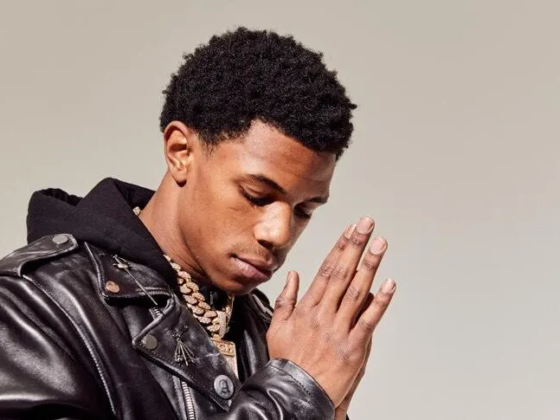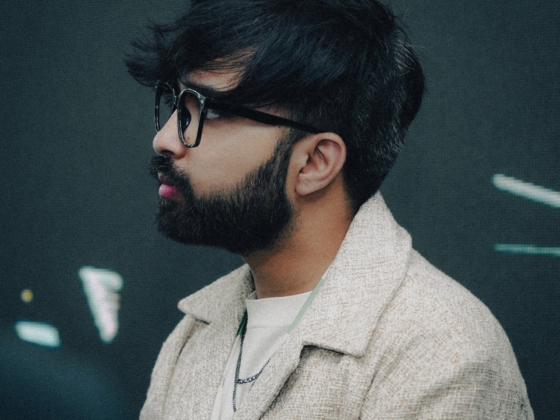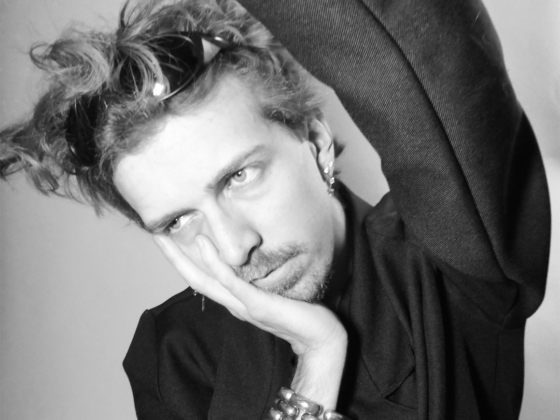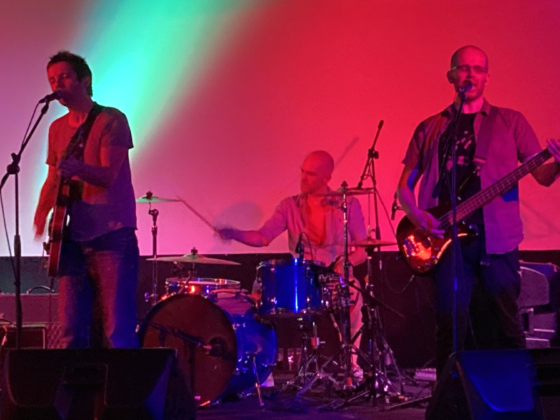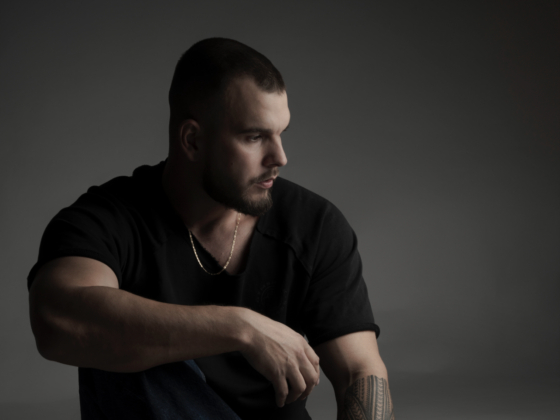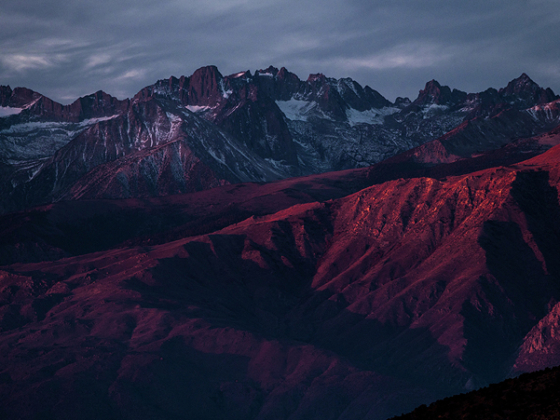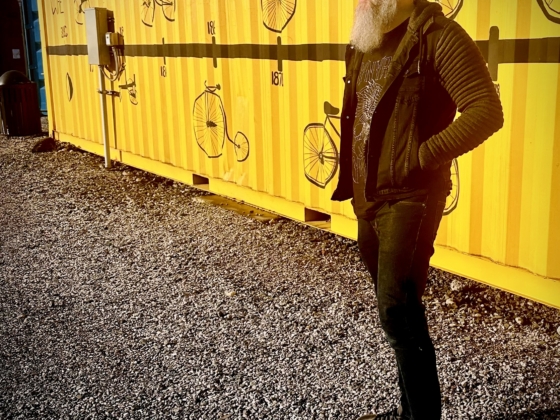No conversation about culture would be complete without mentioning race. Similarly, no discussion of music would be properly exhausted without including race. While most facets of society, in reality, are impacted by race, the intersection of culture, music, and race is of particular significance, both for its ramifications in the music industry as well as its role in the formation of so many people’s identities around the globe. As someone who takes pride in covering a diverse range of artists for EARMILK, and also one who happens to identify with almost every trait of societal privilege, I set out on a path a few months ago to take my social justice work to another level. Beyond supporting these artists, I wanted to use my platform to let their voices be heard. I connected with eight people of color from varying backgrounds in the music industry who were generous enough to open up about the roles of race and music in their lives. What follows is a presentation and examination of some of their thoughts, which will hopefully help broaden perspectives as we strive for a more just future.
It should be said that the irony is not lost on me that this, the first article for EARMILK where I use the first person, is perhaps the one for which my voice is the least necessary. I made this choice because of the sensitive and personal nature of the topic, and my primary objective throughout was simply to listen. For white people, this is an essential step on the path toward equity. My aim is not to tell people how to be a proper anti-racist with a guide for racial equality, but rather to provide a cross section of BIPOC artists’ perspectives in 2021, which will hopefully lead to deeper and more meaningful understanding.
The eight creatives who took part in these interviews are Adrian Younge, Jamz Supernova, J Hoard, Ray Moon, MEI, Thomas Piper, JClay, and Sananda Maitreya. Although each individual falls somewhere within the vast umbrella of the term BIPOC (Black, Indigenous, and people of color), the list represents a collage of geographical influence, from New York City to Chicago to Los Angeles to London, as well as of gender and sexual identities. This plurality underscores the reality that even though there may be trends in experiences with racism and discrimination for anyone who identifies as a minority, each person brings a wholly unique perspective that informs their perceptions and coping mechanisms.
Unsurprisingly, music plays an integral part in all eight artists’ lives, and our conversations began with a broad exploration of the role of music in their cultural identity. Here are some of their responses:
Vocalist J Hoard: “The Black (COGIC, PAW, Apostolic) church was my first introduction to music. I was taught to truly understand the lyrics and the message of a song from that ‘music scene.’ In addition, I was shown how to connect to an audience – to surrender myself to the moment. That ideology of ‘selflessness’ has played a major role in how I perform, what I write and sing, who I work with, and how I ensure my life reflects the messages given in my music.”
DJ and radio presenter Jamz Supernova: “Both music and the arts I consumed growing up had a massive part of forming my identity… My grandparents are of Jamaican, Irish, and Cuban descent. Although both of my parents were born in Britain, they used music as a way to connect with their ancestry and I think I do the same.”
Multi-instrumentalist and composer Sananda Maitreya: “It [music] has been central to my acceptance of life itself. Anyway, identity is mutable and ever mutates towards whatever flatters it most and art bends always towards the light.”
Vocalist, bassist, and producer MEI: “My cultural identity is rooted in the Black British experience but my Ghanaian heritage has played a huge role in my upbringing… I think music’s role is so integral to cultural education. You learn so much just from hearing different genres of music, especially when they relate to who you are as well.”
Despite the special qualities in music for fostering cultural education and connection, the business side of things is certainly not immune from injustice, and there was a palpable feeling in the interviews that to discuss all the negative experiences in this realm would have been impossible in our allotted time. Here are just some of the examples:
Vocalist, songwriter, producer, multi-instrumentalist, videographer, and photographer Thomas Piper: “There’s a different set of struggles for people of color. Actually it’s the same set, we just get it amplified. We see it first, which is the irony of it, when white people say, ‘we’re going to help you.’ No, no, no. You guys [white people] are lost. We’re not. We see the truth. You can’t, because you’re in it. You have to unplug. Most Black people are unplugged… Whatever happens to us is going to happen to you next… in a lot of ways racism isn’t even racism, it’s just straight up oppression across the board. It’s just that we’re in the weakest position, but yet we’re the strongest because we know the truth.”
Jamz Supernova: “What I have faced has been micro-aggressions and assumptions on the music I play. Touring as a black woman on my own has been amazing but also puts me in a vulnerable position. I have been pushed and shouted at by airline staff, I’m aware in certain places I can’t just leave my hotel room to explore, and I’ve heard people mock my sets saying because I played there, they went to ‘Africa’ that night.”
Rapper Ray Moon: “It’s hard for people to take a lesbian, queer, and androgynous female artist as serious because I’m sadly still in a male-dominated and sex-driven industry. I try to stay strong, fight, and work hard to push through the negativity.”
J Hoard: “The music industry constantly holds up discriminatory constructs. For instance, you’ll be a writer on a top 40 song, it wins Grammys, and you’ll get invited to and receive a plaque for the ‘Urban’ awards sector of your PRO (Performance Rights Organization)… only to learn three years later that the same PRO hosts a Pop awards that you were never invited to because ‘pop’ is white-sounding/appealing and ‘urban’ is Black-sounding/appealing.”
MEI: "Mixed race women with Black heritage seem to be more marketable in the UK industry… Either mixed race or racially ambiguous, that's what's more palatable… It feels like if you are a dark skin Black woman there's less room to be experimental; you're expected to make certain genres of music and if you make music that doesn't quite fit those genre categories, it's harder to gain industry support.”
It was the question of how the artists navigate discrimination that led to the most diversity in the responses:
Rapper and producer JClay: “To take on a Black identity seems like you have to take on the idea that there are people oppressing you, that you don’t have a fair shot at life, that you have to fight for everything. That’s a very sad way to see reality… nobody wants to live like that. It is a reality, but it’s only a reality because you believe it’s a reality and you reinforce it by continuing to share it all the time… when you focus on the good and the good doesn’t happen, you’re unhappy. You’ve set yourself up for failure. But it’s more like there can be no bad. You only see the world through your beliefs… Fear is just a cry for love and if you meet it, there is no adversity that can come to you.”
Multi-instrumentalist and producer Adrian Younge [on the rationale behind his latest album The American Negro]: “This stuff has been going on for a long time and I wanted to really encapsulate these theories, this history, this perspective into a project that people listen to so at least when they make their decisions they can be more educated about it… at least have the context to know what actually happened and why it’s still connected to what happened before… It’s all about highlighting perspectives.”
Jamz Supernova: “To navigate them [discriminatory acts] is to have a strong sense of self and to know the value that I bring. I can’t change people and the way they act in those moments but I can control how I conduct myself and if someone can’t handle my most authentic self then I’m not interested in changing…I’ve always wanted my platform to be one that celebrates Black excellence and tries to deconstruct the homogenous boxes that are around us. I want to shout about the beauty of Black women from the tracks I pick, or highlight that Black people don’t just make R&B and hip-hop.”
J Hoard: The most recent way I’ve managed to navigate the obvious and obscure discriminatory policies and experiences is to make allies and potential allies aware of my experience and to work with people that truly want all of me – Black, gay, Judeo Christian – all of me. The more I am firm in my artistic vision, self-development, and love for humanity, the more I notice the right people interested in learning evolving, and fighting for and with me as I fight with and for others.”
Sananda Maitreya: “Discrimination is a fact of life… the question is not whether I’ve been discriminated against, but whether or not I’ve accepted the discrimination as my final answer or as merely a condition along the way that I have to get through in order to realize my objectives. Discrimination is not the final word unless you agree that it is.”
Thomas Piper: “American racism is all about money. Nothing to do about color. It’s all bread. That’s what it started for; that’s the whole point! ‘I want you to work for free. So how can I exploit you to work for free? Oh, you look different? That’s it, that’s how we’re going to do this…’ African Americans have a part to play in the sense that we have to let the world know that it’s not our job to be the greatest and the best and all that stuff. The system is supposed to protect all of us regardless of color, economic standing, or presumptions.”
When asked about their view of the most effective actions people can take to improve social justice, there were varying ideas but also some notable themes:
MEI: “Education is probably the key. It would be nice if in this country [U.K.] they actually taught Black history properly… I don’t remember learning much about Black history in school, at all, which is outrageous. But also it would be great if people got to learn about colonialism and how horrendous it was. We should really start from there… Just be honest about your privilege and we can start from there… People have lied to themselves for a really long time and that’s why there’s no progress.”
J Hoard: “Talk to each other. Listen. Also allow space and time for healing, understanding, and partnership in the fight… Most importantly, listen to, trust, follow, and support Black women/Indigenous/WOC and literally ask how best you can help them and their efforts. Hashtags only go so far. Sometimes we have to actually go to the place, actually donate to the thing, actually stay connected to a movement even when it’s not trending. Black women and women of color will always have the answers – history has proven this time and time again. Work with and for them… Share your resources, utilize the trustworthy people you know in government, city planning, and general business affairs.”
Adrian Younge: “The most effective action people can take is learning history in order to understand what is going on in the present… If you know what has happened, and you know what the government is trying to do right now, you should have a better foresight than the novice person. The real purpose here is to educate but then steer people in the direction of just doing good and being right and recognizing wrongs… It’s about recognition of the value of people.”
Sananda Maitreya: “To become less judgmental is a great beginning as well as a contributive solution… Remember that as evil as it feels, most racism is simply jealousy! Not hate nor fear but jealousy.”
Ray Moon: “Spread kindness and treat all people equally, not just giving a specific race or gender access or rights to certain resources… Stay true to yourself, be aware, educate yourself, keep an open mind, and overall keep love in your heart.”
The artists were also asked more specifically if they have any words of advice for young people and future generations in confronting and coping with racism.
Jamz Supernova [To BIPOC kids]: “Know that you are valuable and needed. You have a unique experience and a take on the world. Shout about it. Don’t be afraid that you should hide your differences. Make them known because bottom line is so many industries have realized they now need you, and if they don’t evolve they will be extinct so run with that.” [To White kids]: “Really listen to the experiences of BIPOC people. Don’t try and minimize it because you either don’t believe it happened or couldn’t believe it would happen. Just listen. Also, have challenging conversations with other white people about race and call it out when you hear it or see it.”
Thomas Piper: “I think Martin Luther King was right on the integration thing. It’s the only reason why California and New York are more liberal: ‘I see this guy every day, he can’t be that bad…’ Understanding how the government works would be another suggestion, and who you are in the government… Too many people look at the government as, ‘This is the government and they tell me what to do.’ No, you are the government and you elect these people to do your bidding. You’re the boss.”
J Hoard [to BIPOC kids]: “I want to encourage them to embrace their heritage – the good and the bad – as a guide to improve their individual lives for the hope of the world. I want them to not feel lumped together (BIPOC) as a means of not being seen – but more as a means to see how literally powerful more of us, they, we, are together. It’s okay to have an identity. It’s okay to ‘be something,’ to keep learning and growing.” [To white kids]: “Realize how even in a description of culture you still stand on your own, are valued on your own – no abbreviations to define your distinct cultures, just the ‘color’ white. Lean into that simple realization. Then make space, ask your BIPOC friends and classmates how to help, research your own, be sure to be loud about the stolen credits – lives, land, resources – you find as you research. Then make space again, talk to you family, use your resources to help when someone not white reaches out or ‘expresses’ their need for help.”
Adrian Younge: “You have to continue to fight for what’s right because history shows that things are better. I’ll always say that the language of the oppressed is insurrection and you should use your voice for change… teach everybody that there is really no such thing as race. There’s no eugenic difference between all of us. We’re really all the same.”
MEI: “For Black kids, I can say to just keep going. If there’s something you really want to do, just keep doing it until you get there. I think that’s actually all we can do. I can’t get up one day and be like, ‘Right, I’m going to cancel racism.’ I can’t do that. What I can do is keep making music. Just keep going because eventually you do make steps forward and even though it is so slow compared to what it should be, the reward is going to be greater. You know you took the harder path and, despite everything, you still got there.”
JClay: “The main thing is just listening, because when you listen you can start to question your own thoughts. And not to say that you have to agree with what people are saying, but just listen… We have an inkling to just parrot an answer that we heard or that our parents told us or that the TV told us without even really questioning if that’s the best course of action. When you sit back and listen, you just have time to form a somewhat real opinion… It sounds corny, but lead with love, always.”
Racism is a complicated societal problem with far-reaching influence and deep historical roots, and there are no simple fixes. If these artists’ words have shown us anything, it’s that every person of color has a unique experience and perspective when it comes to identity, race, and culture and each should be heard. A few of the artists expressed some discomfort in speaking on behalf of BIPOC people, which offers an important reminder that, in the same way that white people are seen as individuals first, so too should be the case for people of color. With music as a connective tool, if more of us can practice halting our thought patterns and preconceived notions and really listen to the perspectives of people who are different from us with respect and an open mind, perhaps we will see more positive change in the future.
…
I hope you join me in thanking these artists for sharing their experience and wisdom by supporting their musical work. Here are some of their latest projects:
J Hoard has three singles that have been recently released, "Foolish," "Real Lovin" with KingKlavé and "Find Light," with Simon Dufour and Aaron Day. Connect with J Hoard: Instagram | Twitter | Facebook | Soundcloud | Bandcamp | Spotify | Website
Jamz Supernova has her own label Future Bounce that recently wrapped it's Club Series, Vol. 1, which can be found here. Her DJ sets can also be heard on BBC 1Xtra and 6Music. Connect with Jamz Supernova: Instagram | Twitter | Facebook | Bandcamp | Soundcloud
Ray Moon's latest single "Glowin" is out now and available to stream or download here. Connect with Ray Moon: Instagram | Twitter | Soundcloud | YouTube | Spotify
Thomas Piper's empowering debut album Permission to Live can be streamed or downloaded here, featuring the singles "Supply Life" and "Dreamers Manifesto." He also has a weekly live beat-making YouTube series called BeatDesign which can be found here. Connect with Thomas Piper: Instagram | YouTube | Facebook | Bandcamp | Soundcloud | Spotify | Apple Music | Website
Adrian Younge is fresh off the release of his expansive multi-media project that features the album The American Negro, a short film entitled TAN, and a podcast called "Invisible Blackness." Connect with Adrian Younge: Instagram | Twitter | Facebook | Bandcamp | Spotify
MEI's latest projects can be found here. She has a new forthcoming EP that is due out later this summer. Connect with MEI: Instagram | Twitter | Facebook | Bandcamp | Spotify | Soundcloud
JClay's most recent album IAMNOBODY, IAMSOMEONE is available to stream or download here. Connect with JClay: Instagram | Twitter | Facebook | Bandcamp | Spotify | Soundcloud | Website
Sananda Maitreya recently released the album Pandora's Playhouse, which is available at his website here. Connect with Sananda Maitreya: Instagram | Twitter | Facebook | Soundcloud | Spotify | Website


